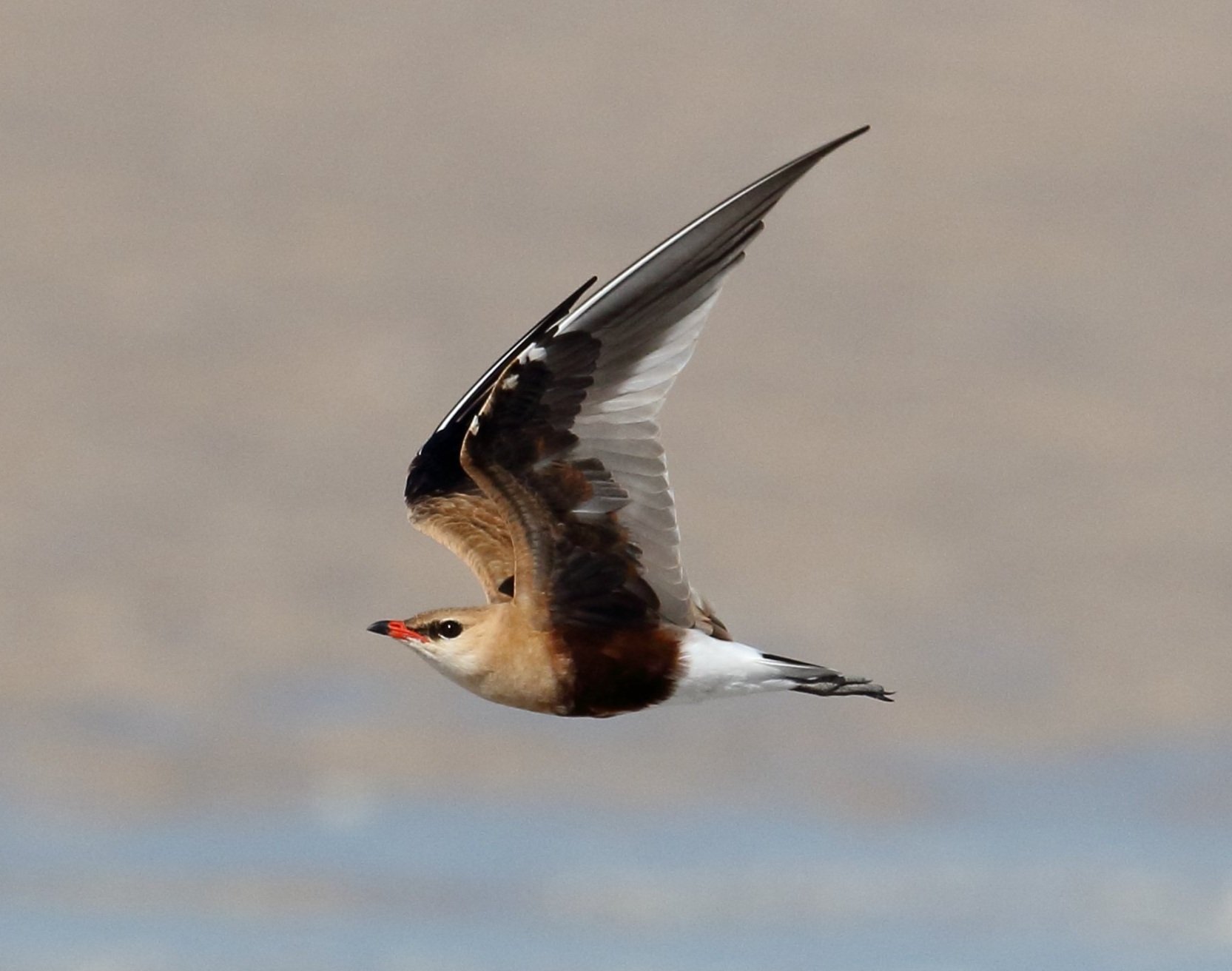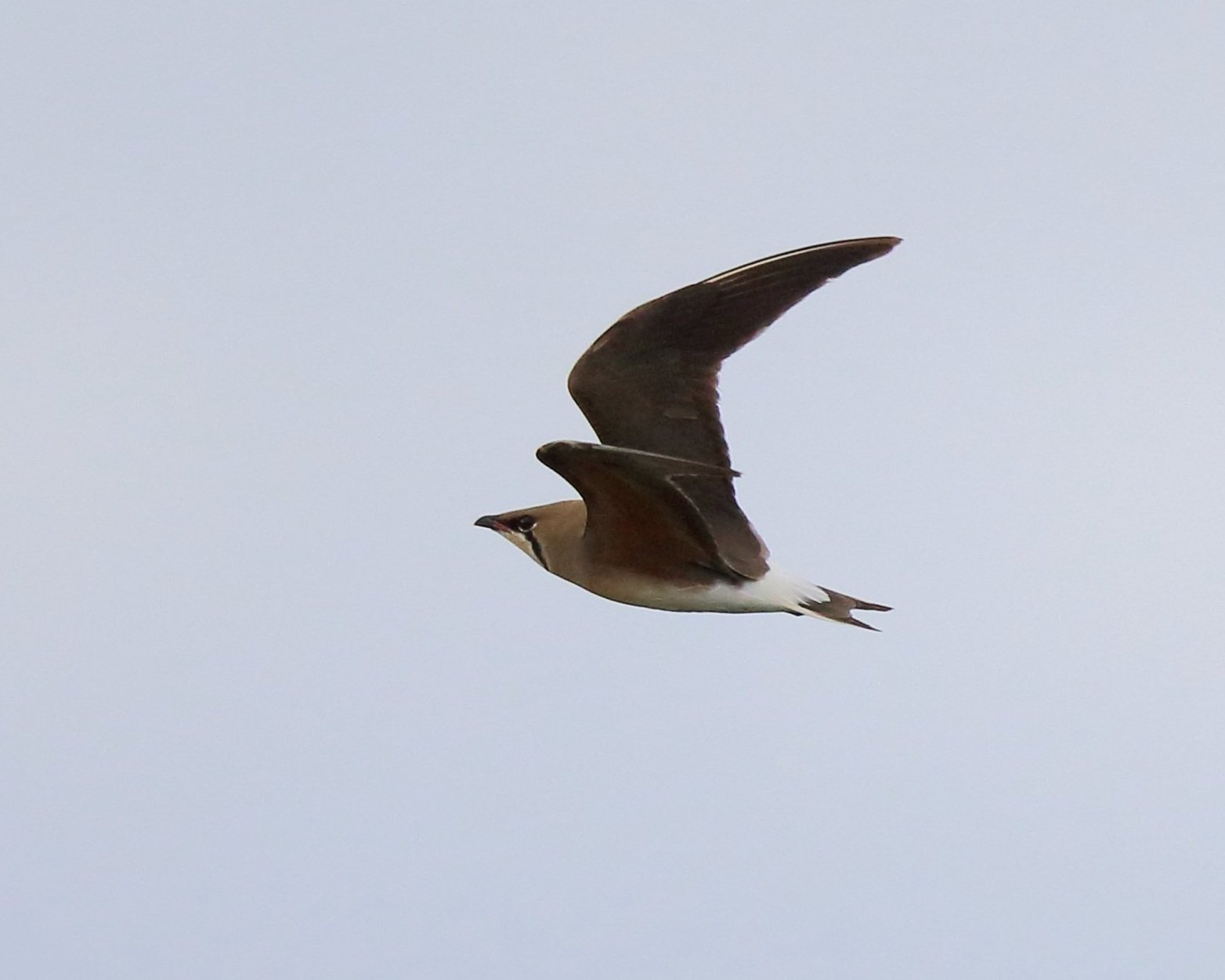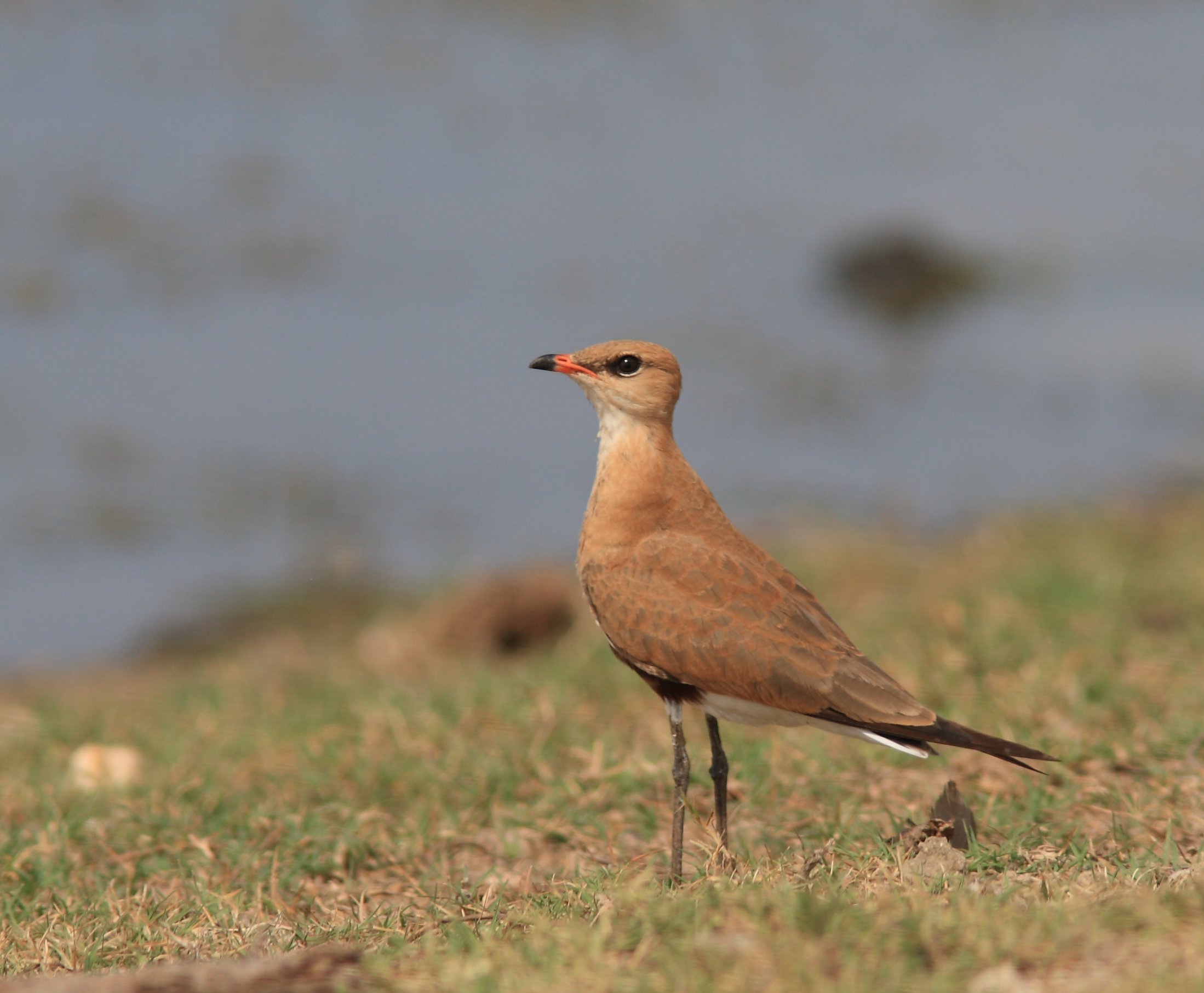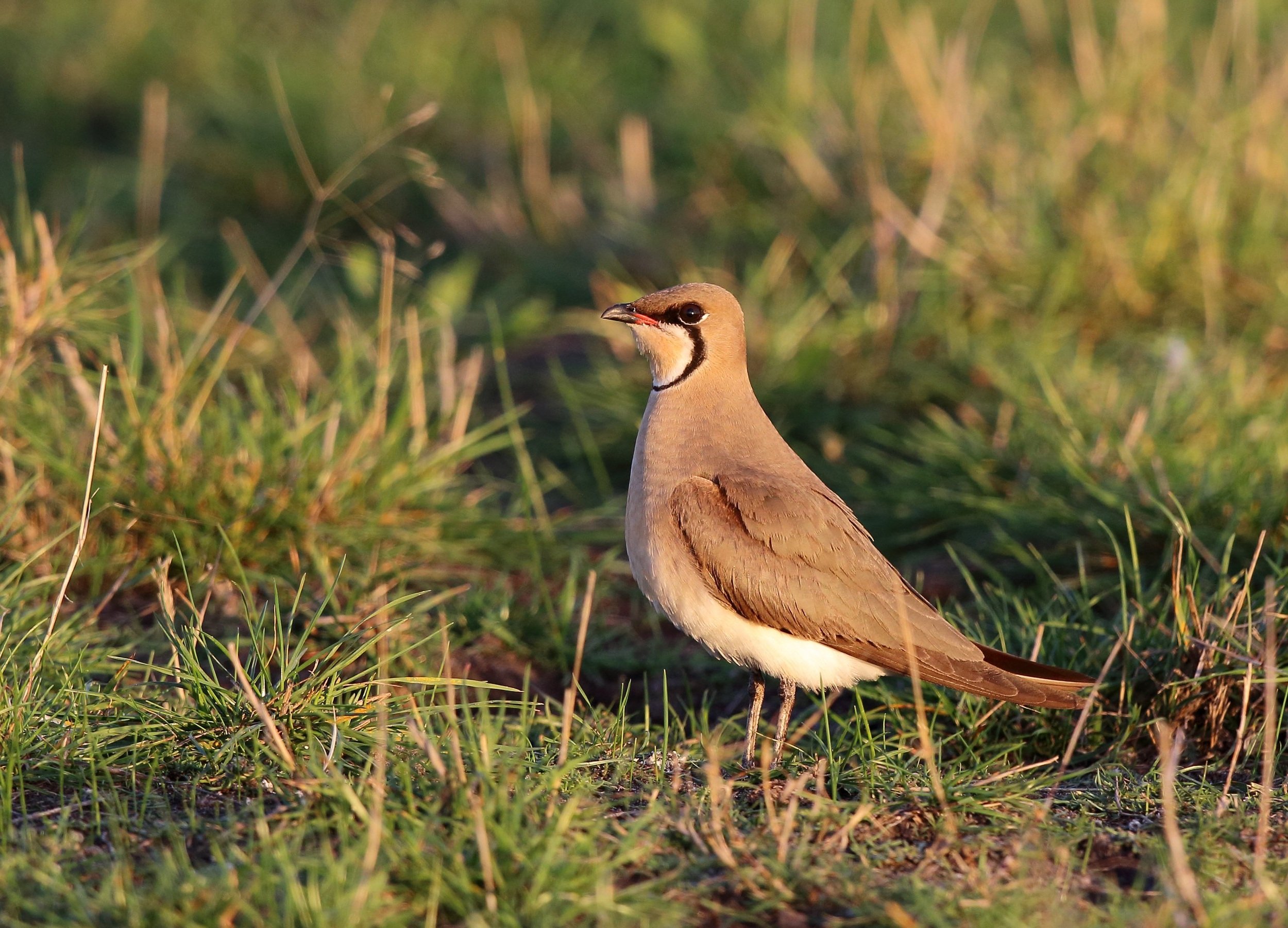Oriental Pratincole Project
Have you seen this bird?
January 2023
By Amanda Lilleyman and Grace Maglio
Oriental Pratincole. Photo credit: Robert Bush
The Oriental Pratincole (also known as Grasshopper Bird, Swallow-plover, Rain Bird and Stormbird) is Australia’s most numerous migratory shorebird. In 2004, almost three million birds were counted in Northern Australia at Eighty Mile Beach. Their time in Australia is quite short, arriving around November and heading north to their south-east Asian breeding grounds around February. The Oriental Pratincole is known to follow locust and other insect blooms inland as well as coastal areas. If these birds are not at Eighty Mile Beach, we are not sure what part of Northern Australia they are, so we are calling on landowners and managers from cattle stations, agricultural lands, Indigenous Rangers, and anyone interested in birds, particularly from the Kimberley, Pilbara, Northern Territory and Outback and northern Queensland to help us by reporting any sightings.
This project will also include working in Key Biodiversity Areas in north-west Australia. In the Roebuck Bay KBA, we will work alongside Indigenous rangers, the Yawuru Country Managers and at the Mandorah Marsh and Anna Plains KBA, we will work with the Karajarri Rangers and Ngangumarta Rangers.
We would love to hear about any observations you have had of Oriental Pratincole, current and historical sightings welcome.
Contact Grace Maglio via email: waderslife@hotmail.com
The Oriental Pratincole looks similar to the Australian Pratincole. You can tell them apart by the difference in their colours when the birds are in flight. The Australian Pratincole has a dark rufous band across its belly and under its wings, while the Oriental Pratincole has light brown underwings.
The Oriental Pratincole also has a dark chinstrap loop which goes from eye to eye.
Australian Pratincole (left) and Oriental Pratincole (right) in flight, showing the different plumage markings. Photo credit: Andrew Silcocks.
Australian Pratincole and Oriental Pratincole standing in grass, showing the different plumage markings. Photo credit: Andrew Silcocks.
This project is supported by Rangelands NRM and the Overwintering Project.






